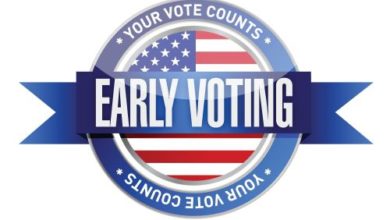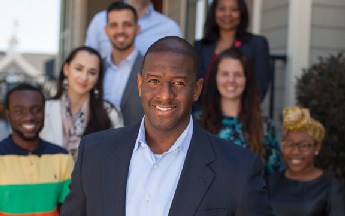Presidential Debates Come Too Late to Influence Some U.S. Voters
By Bridget Hunter
Washington — In the hours leading up to the first debate between the Republican and Democratic nominees to the U.S. presidency, pundits and political analysts are themselves debating whether the matchup will change minds.
For some voters, the answer is a resounding “no” because they will have already cast their ballots in one of the many states that allow early voting.
Even though Election Day is five weeks away, in-person early voting began October 2 in Ohio, considered a swing state in the presidential election. In Iowa, another battleground state, early voting began September 25.
Both presidential campaigns are working hard to turn out early voters. In Ohio, Democrats held “Sleep Out the Vote” events at which supporters camped out overnight at early voting sites in advance of their openings, while Republicans held a 7:30 a.m. early voting rally at a Romney campaign office.
Approximately 31 percent of the U.S. electorate voted early in 2008, but the percentages were much higher in battleground states like Florida (51.8 percent), Nevada (66.9 percent) and North Carolina (60.6 percent), according to the National Conference of State Legislatures.
The conference reports that 34 states and the District of Columbia currently offer their registered voters the opportunity to cast ballots early. Political analysts predict that between 30 percent and 40 percent of all U.S. votes cast in the 2012 elections will be submitted before Election Day.
Early voting options vary among states. Some, like Indiana and Texas, let people vote early at special polling sites. Others, like Oregon and Washington, conduct early voting exclusively by mail. Ohio allows persons to request a mail ballot for any reason, while Pennsylvania and Virginia retain absentee-balloting laws that allow early voting only by those who provide a valid excuse.
One notable exception to the early-voting trend is Florida, another swing state, which has reduced its number of early voting days from 14 to eight.
The predicted rise in early voting for 2012 continues a trend established in prior 21st-century U.S. elections. Ohio, where polls suggest Obama is gaining support, is on track to accept more early votes than it did in 2008. This is partly because, for the first time in state history, election officials are sending every registered voter in the state an absentee ballot request form.
With so many votes being cast early, former Massachusetts Governor Mitt Romney has a very limited time to erase the lead that recent opinion polls suggest President Obama now holds. Even though presidential debates offer Romney a chance to change the current dynamics of the race, many voters will have already cast their ballots before all three debates are held.


